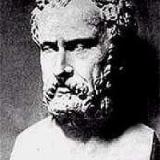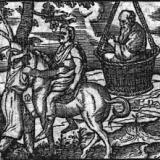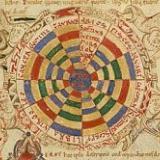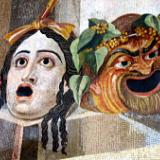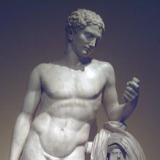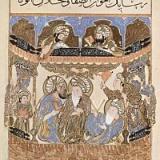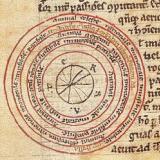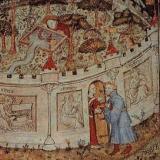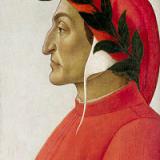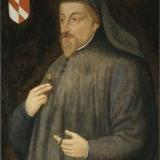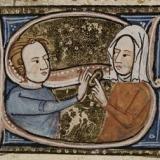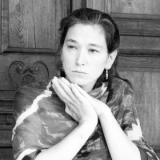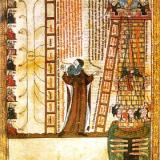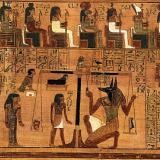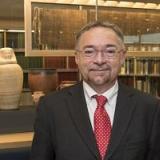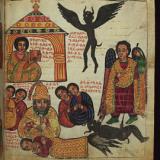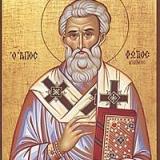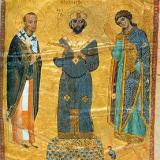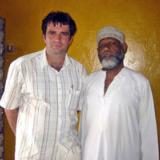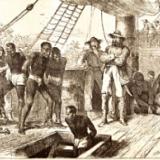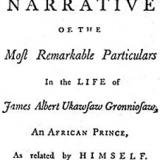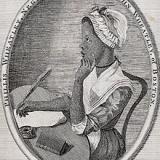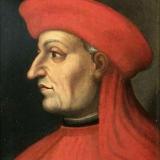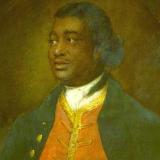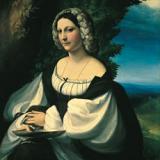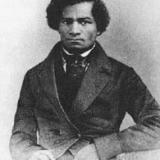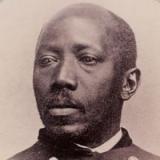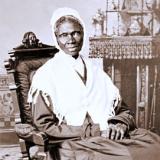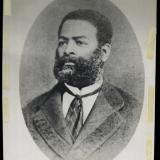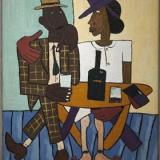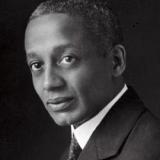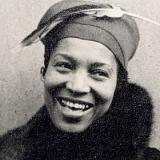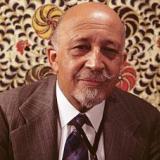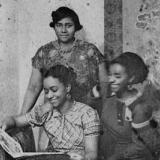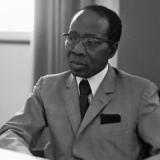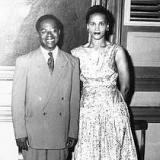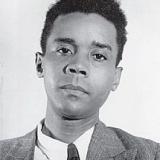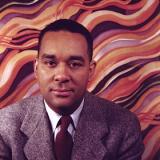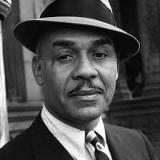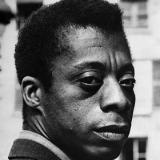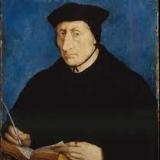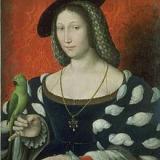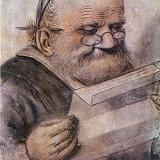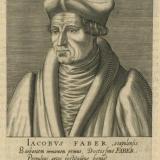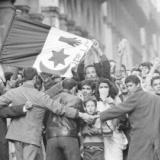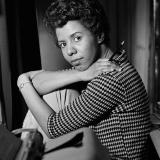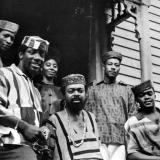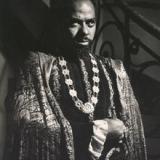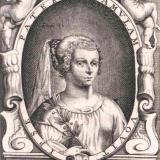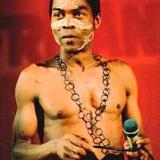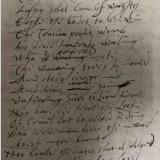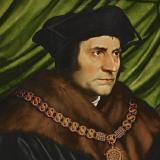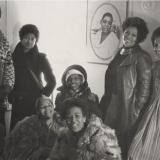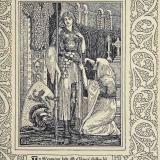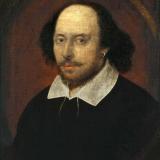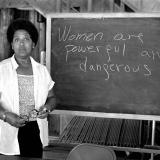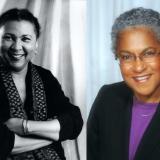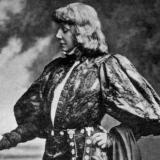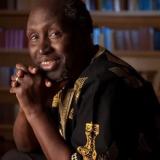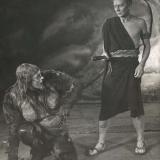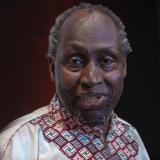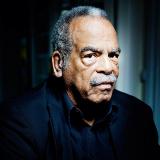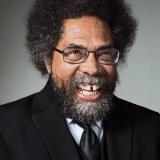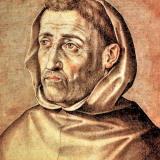Literature
Posted on
In this episode, Peter talks about the Greek gods in Homer and Hesiod, and the criticism of the poets by the Presocratic philosopher Xenophanes.
Posted on
In the first of several episodes on Socrates, Peter discusses his portrayals in "The Clouds" of Aristophanes and in the works of the historian Xenophon.
Posted on
Plato criticized both the epic poetry of Homer and Hesiod, and the tragic and comic poets. Yet he invented myths of his own. So what was his attitude towards literature and myth? Peter tackles this question in a final episode on Plato.
Posted on
A penultimate episode on Aristotle considers his discussion of persuasive speech in the Rhetoric and his account of ancient tragedy in the Poetics.
Posted on
Peter looks at the interaction between rhetoric and philosophy in the Roman Empire, discussing authors like Quintilian, Lucian and Themistius.
Posted on
Miskawayh, al-‘Āmirī, al-Tawḥīdī, the Brethren of Purity and Ismā'īlī missionaries bring together philosophy with Persian culture, literature and Islam.
Posted on
As early medieval science blossoms, Bernard Silvestris and Alan of Lille personify Nature in their philosophical prose-poems.
Posted on
Sex, reason, and religion in Jean de Meun’s completion of an allegory of courtly love, the Roman de la Rose.
Posted on
Italy’s greatest poet Dante Alighieri was also a philosopher, as we learn from his Convivio and of course the Divine Comedy.
This episode is dedicated to John Kleiner, the inspirational teacher with whom I had my first experience reading Dante.
Posted on
Philosophical themes in Chaucer’s “Canterbury Tales” and “Troilus and Criseyde,” as well as Langland’s “Piers Plowman.”
Posted on
Medieval attitudes towards homosexuality, sex and chastity, and the status of women. Authors discussed include Aquinas, Catherine of Siena, and Chaucer.
Posted on
An interview about the status of nonhuman animals in ancient Indian philosophy and literature.
Posted on
Peter is joined by Isabel Davis to discuss marriage, sex and chastity in Chaucer, focusing on the Wife of Bath's speech.
Posted on
The host of the History of India podcast joins us for the final episode on India.
Posted on
The Renaissance ideals of humanism and universal science flourish already in the medieval period, in the works of Petrarch and Ramon Llull.
Posted on
Demands for ma’at (justice or truth) and a confrontation with the soul, in the Tale of the Eloquent Peasant and Dispute Between a Man and his Ba.
Posted on
Egyptologist Richard Parkinson joins us to talk about the context and meaning of the Eloquent Peasant and other literary works of ancient Egypt.
Posted on
Translations of religious and philosophical texts into Ge’ez, a national epic called the Kebra Nagast, and other developments in the story of philosophy in Ethiopia.
Posted on
Photius, “the inventor of the book review,” and other Byzantine scholars who preserved ancient learning.
Posted on
Psellos and other experts in rhetoric explore how this art of persuasion relates to philosophy.
Posted on
A conversation with Sam Imbo on approaching oral traditions as philosophy and the Ugandan thinker and poet Okot p'Bitek.
Posted on
An interview with Kai Kresse (pictured here with Ustadh Mahmoud Mau) who discusses his efforts to do "anthropology of philosophy" on the Swahili Coast.
Posted on
An introduction to Africana philosophical thought as it emerged from the modern experience of slavery and colonization by Europeans.
Posted on
Eighteenth century black authors touch on philosophical themes in autobiographical narratives, poetry, and other literary genres.
Posted on
Phillis Wheatley astonishes colonial Americans with her exquisite and precocious poetry and reflects on the liberating power of the imagination.
Posted on
Coluccio Salutati and Leonardo Bruni combine eloquence with philosophy, taking as their model the refined language and republican ideals found in Cicero.
Posted on
Ignatius Sancho and Benjamin Banneker make their mark on the history of Africana thought through letters that reflect on the power of sentiment.
Posted on
Cassandra Fedele, Isotta Nogarola, and Laura Cereta seek fame and glory through eloquence and learning.
Posted on
Frederick Douglass' journey from slave to leading figure of 19th century American thought.
Posted on
He is called a “father of black nationalism,” but Martin Delany also promoted integration in American society. Can the apparent tension be resolved?
Posted on
The moral crusades of Sojourner Truth and Frances Harper, activists against racial and gender oppression.
Posted on
Abolitionists Luiz Gama and Joaquim Nabuco, and the great novelist Machado de Assis, react to the injustices of slaveholding in Brazil.
Posted on
Co-host Chike joins Peter to look back at series two and ahead to series three.
Posted on
The artistic flowering of the 1920s known as the Harlem Renaissance raises important questions about identity and the purpose of art.
Posted on
The aesthetics of Alain Locke and its basis in his theory of value judgments.
Posted on
Zora Neale Hurston’s interest in Africana folklore feeds into her great novel Their Eyes Were Watching God.
Posted on
Du Bois moves to the left, and revisits and refines older positions during the latter half of his very long life.
Posted on
Our first look at the emergence of the Negritude movement in Paris in the 1930s, with a focus on the early leadership of the Nardal sisters and Leon Damas.
Posted on
Leopold Senghor compares different ways of knowing while developing his theory of Negritude and combining the roles of poet and politician.
Posted on
Negritude thinkers Aimé and Suzanne Césaire embrace surrealism and reflect on the relationships between poetry, knowledge, and identity.
Posted on
The Trinidadian historian and cultural critic C.L.R. James applies Marxist analysis to the Haitian Revolution, American cinema, and Shakespeare.
Posted on
Famous for his incendiary novel Native Son, Richard Wright responds in his multifaceted writings to sociology, communism, colonialism, and existentialism.
Posted on
Ralph Ellison provides a new metaphor for the experience of racism in his Invisible Man and tackles topics of art and identity in his essays.
Posted on
In The Fire Next Time and other writings, the essayist and novelist James Baldwin seeks to dispel the illusions surrounding racial and sexual difference.
Posted on
We begin to look at philosophy in Renaissance France, beginning with humanists like Budé and the use of classical philosophy by poets du Bellay and Ronsard.
Posted on
A Renaissance queen supports philosophical humanism and produces literary works on spirituality, love, and the soul.
Posted on
In his outrageous novel about the giants Pantagruel and Gargantua, Rabelais engages with scholasticism, humanism, medicine, the reformation, and the querelle des femmes.
Posted on
Jacques Lefèvre d’Étaples and Julius Caesar Scaliger fuse Aristotelianism with humanism to address problems in logic and literary aesthetics.
Posted on
Fanon’s incendiary final work explores the violent process of decolonization.
Posted on
The author of the famous play, A Raisin in the Sun, explores questions of violence, sexuality, and more during her too brief life.
Posted on
African American literature of the late 1960s reflects the Black Power movement, in the works of such authors as Amiri Baraka, Nikki Giovanni, Haki Madhubuti, Larry Neal, and Sonia Sanchez.
Posted on
Abdias do Nascimento, a leader in Brazilian theater and politics, and his theory of Quilombismo.
Posted on
Marie le Jars de Gourney, the “adoptive daughter” of Montaigne, lays claim to his legacy and argues for the equality of the sexes.
Posted on
The political and musical revolution of Fela Kuti’s Afrobeat, the social critique of his cousin, the playwright Wole Soyinka, and the extraordinary career of Fela's mother Funmilayo.
Posted on
Humanism comes to England and Scotland, leading scholars like Thomas Eylot and Andrew Melville to rethink philosophical education.
Image: Queen Elizabeth's translation of Boethius
Posted on
What is the message of the famous, but elusive, work Utopia, and how can it be squared with the life of its author?
Posted on
Toni Morrison, Alice Walker, and Maya Angelou explore the themes of black feminism (or “womanism”) in their fiction.
Warning: this episode contains discussion of sexual violence and suicide.
Posted on
We begin to look at Elizabethan literature, as Sidney argues that poetry is superior to philosophy, and philosophy is put to use in Spenser’s Fairie Queene.
Posted on
How should we approach Shakespeare’s plays as philosophical texts? We take as examples skepticism and politics in Othello, King Lear, and Julius Caesar.
Posted on
In poetry and prose, especially her collection Sister Outsider, Audre Lorde explores ideas of difference, eroticism, and feminist theory.
Posted on
We're joined by Patrick Gray to discuss Shakespeare's knowledge of philosophy, his ethics, and his influence on such thinkers as Hegel.
Posted on
We bring the story of black feminism up to the turn of the century with the incisive works of bell hooks and Patricia Hill Collins.
Posted on
How the Renaissance turn towards individual identity is reflected in Shakespeare's most famous play.
Posted on
How one of Kenya's greatest writers came to argue that African literature should be written in African languages.
Posted on
Can Shakespeare’s Tempest be read as a reflection on the English encounter with the peoples of the Americas?
Posted on
The great Kenyan writer Ngũgĩ wa Thiong'o joins us to speak about his career, his influences, and the power and politics of language.
Posted on
How Macbeth reflects the anxieties and explanations surrounding witchcraft and witch-hunting in early modern Europe.
Posted on
Poet, novelist, playwright and philosopher Edouard Glissant, his theory of "creolization", and the Creolists who were influence by him.
Posted on
The author of an important book on Glissant joins us to talk about his approach to this major Caribbean thinker.
Posted on
Cornel West joins us to look back on the development of his thought and the many authors who have inspired him.
Posted on
Fray Luis de Leon, Antonio Nebrija, Beatriz Galindo and other scholars bring the Renaissance to Spain.

